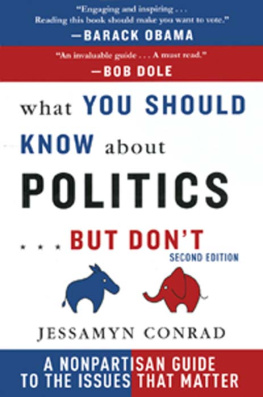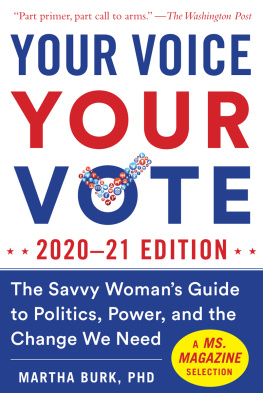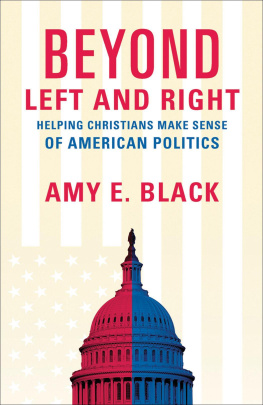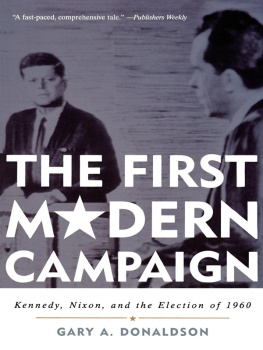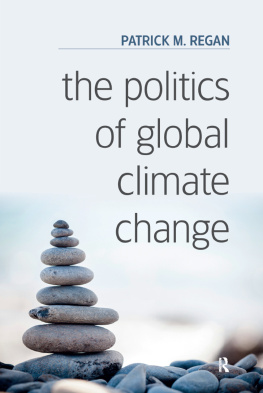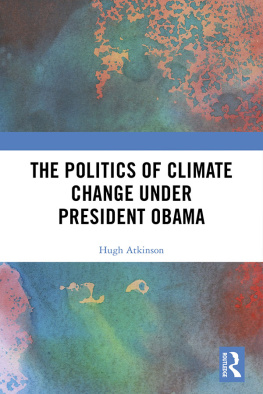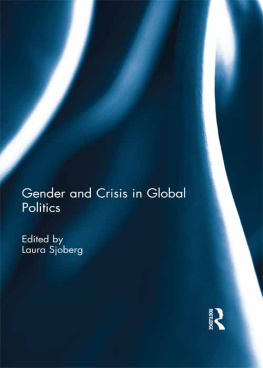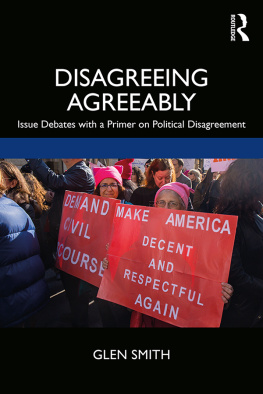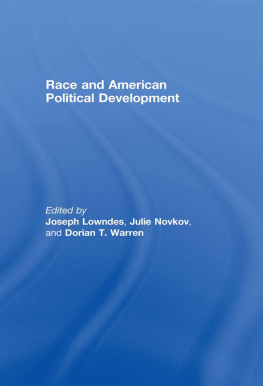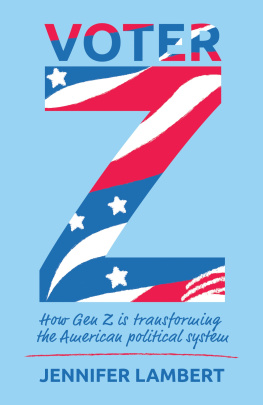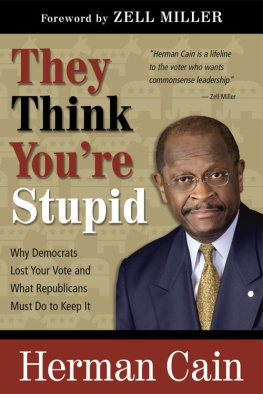All Rights Reserved. No part of this book may be reproduced in any manner without the express written consent of the publisher, except in the case of brief excerpts in critical reviews or articles. All inquiries should be addressed to Arcade Publishing, 307 West 36th Street, 11th Floor, New York, NY 10018.
Arcade Publishing books may be purchased in bulk at special discounts for sales promotion, corporate gifts, fund-raising, or educational purposes. Special editions can also be created to specifications. For details, contact the Special Sales Department, Arcade Publishing, 307 West 36th Street, 11th Floor, New York, NY 10018 or arcade@skyhorsepublishing.com.
Arcade Publishing is a registered trademark of Skyhorse Publishing, Inc., a Delaware corporation.
Visit our website at www.arcadepub.com.
Library of Congress Cataloging-in-Publication Data is available on file.
Preface
Im surprised that nobody has written this book before me. Youd think that in the United States, one of the largest functioning democracies on earth, someone already would have produced an issue-based, nonpartisan guide to the often mucky world of contemporary American politics. But nobody has until now.
I wrote this book to fill a void, the existence of which has been made all the more apparent by myriad mudslinging volumes in the Ann Coulter Michael Moore mold, books that are more about theater than ideas, that have more to do with misplaced hate than thoughtful contemplation of the issues ahead. In a world of sound bites and deliberate misinformation, a political scene that has become literally colored by whats probably a false divide blue vs. red how is anybody supposed to get unadulterated facts? Now that TV news is increasingly partisan, newspapers decreasingly relevant, bloggers, YouTube newscasters, and PACs like Move On more potent, where can the average educated American find reliable sources? Well, hopefully, you can come here.
Like many Americans, and like most Americans my age, I wasnt active in politics or even very interested until a few years ago, even though I grew up in an intensely political environment. I have to fess up now: My dads been in the United States Senate since 1987. My uncle, my mothers brother, was a two-term governor in our home state of North Dakota and became secretary of agriculture in 2008. My dad is a somewhat conservative Democrat; my uncle is a Republican. I myself was once a write-in candidate for soil conservation officer (Alice, I appreciate your vote). Yes, I know, its weird, but as my mom always used to say, were from North Dakota. Everybody gets to be something for a while. As long as you bring a hot dish.
Ive been privileged to see not only the insides of our political system but to experience many different political environments. North Dakotans are an unusual blend of conservative and liberal. In a state where George W. Bush got a bigger percentage of votes than in his own home county in Texas, our entire congressional delegation is Democratic. North Dakotans are middle-class, rural, and largely religious. I now live in New York, one of the richest, most urban, and least religious places on the planet. I grew up in Minnesota as well, a place with a perplexing mix of liberalism and conservatism that is still the only state where people think that a career in professional wrestling might plausibly qualify you to be governor. New England was home for several years, and I spend time in California. Ive also lived in Italy, England, Morocco, and India, so Ive been exposed to how a diverse array of people approach political issues.
I became interested in politics when we invaded Iraq. I had studied Islamic art, Middle Eastern history, and Arabic in college, and I was shocked by how little even the media knew about the issues they were covering. I realized that they probably didnt know much more about monetary policy than they did about mosques, and so I got more involved. As a historian by training and nature, though, my instinct is to do a lot of research and try to figure out who wants what and why then write about it. Its a way of working that has led to this book, which is essentially a political primer with a dash of anthropology and cultural history, rather than a diatribe by someone who decided long ago who she hated and what she loved. Im still trying to figure that out.
Personally, Im not much of an ideologue. Because North Dakota does not require me to register to vote, I have no party affiliation. If I had one, Id be a disappointed Democrat with a strong libertarian streak. In another era, I probably would have been a Rockefeller Republican. I loathe the entrenched political machines of both parties, which I think are dangerous and far too often misleading, manipulative, and fundamentally dishonest. So in that sense, you might say Im a populist. My most politically informed friend calls me a pragmatist, and thats about right. I get my undies in a bunch when people lie. I want things to work well. I think we probably should be nice to other people as much as possible, but I believe theres such a thing as evil in the world, too. Mostly, Im glad I dont have to make these decisions. I dont know what I would do about gun control, or the death penalty, or trade agreements, if it were up to me. Like most Americans, Im conflicted on many issues. Writing this book gave me a lot to think about. My hope is that it will help you learn more about the issues, decide who you think you should vote for, and why.
The most common response I got while writing this book was also probably the most telling. A nonpartisan guide? people asked. How can you even do that? I was always a bit baffled by that question. I dont think its very hard to give people all sides of the story. Even if I have a personal position, it doesnt mean I dont see the other sides point. Im pro-choice, for example, but I understand the pro-life argument. Im more than happy to present both viewpoints.
After all, its up to you to make your own decisions. Im just going to put all the pertinent information in one place, and Ill describe who argues over what and why. Im going to explain how systems can affect outcomes, and Ill give you an insiders secrets to decode political spin. While most chapters have a background section to orient you on how the various debates are framed, some chapters, such as the one on socioeconomic policy, are a grab-bag of issues that dont share one common historical or ideological background. Some, like the chapter on trade, necessitate defining some basic terms, because you simply need to know a little lingo to talk about it.
The chapters are arranged to reflect how Americans prioritize the issues. However, I begin with elections because they are necessary for everything that follows: it takes officials to enact policy, after all. Each chapter, however, stands alone. You may read the book from cover to cover, or you may use it as a reference and look up an issue or policy area if you want to learn more about something youve seen on TV or read in the paper.
So if you read this and find yourself a little less confused when someone brings up wiretapping at a dinner party, or Iran over drinks, I figure Ive done my job. If this gets you a little more involved, a little more interested, and a little more informed, Im happy because one of the things we can probably all agree on is that an engaged electorate is ultimately in everyones best interests.

